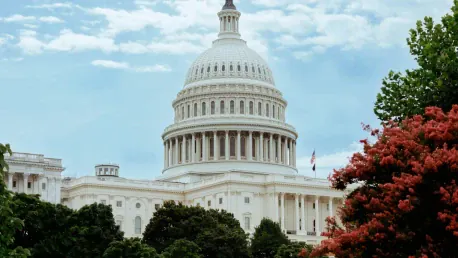The Trump administration’s recent executive orders aimed at dismantling Diversity, Equity, and Inclusion (DEI) initiatives have sparked significant concern across various sectors, particularly within the telecommunications industry. These orders threaten to undermine the progress made in creating a diverse and inclusive workforce, which is crucial for the industry’s growth and technological advancement. The impact of these orders is likely to be far-reaching, potentially widening the digital literacy divide and hindering workforce development efforts that are essential for current fiber buildouts.
The Importance of DEI in Telecom
Diversity, Equity, and Inclusion (DEI) initiatives play a pivotal role in the telecommunications sector, especially in workforce recruitment and development. The broadband and wireless sectors rely heavily on a diverse workforce to meet evolving technological demands and to bring unique perspectives and problem-solving approaches to the table. These initiatives are not just about fairness or corporate image; they are integral to fostering innovation, driving growth, and ensuring that the industry can attract and retain talent from a variety of backgrounds.
The elimination of DEI initiatives could have far-reaching negative consequences. Without these programs, the digital literacy divide may widen, and workforce development efforts essential for current fiber buildouts could be significantly hindered. Confusion and wasted efforts resulting from poorly written memos and inconsistent communication from the administration regarding DEI policies further exacerbate the situation. Such disruptions can stymie progress at a critical time when the telecom industry is poised for major expansions and upgrades, making it all the more crucial to maintain a clear and consistent approach to diversity and inclusion.
Workforce Shortage Concerns
The broadband industry is already anticipating a significant worker shortage ahead of the Broadband Equity, Access, and Deployment (BEAD) rollouts. A study by the Fiber Broadband Association projects a shortage of 28,000 construction workers and 30,000 technicians by 2030. This looming shortage underscores the importance of robust DEI initiatives to attract a diverse pool of candidates to fill these critical roles. Diversity in recruitment ensures that the industry can tap into the widest possible talent pool, thus alleviating the anticipated labor crunch and ensuring that necessary infrastructure projects are completed on time.
As of 2024, the U.S. telecommunications sector employed approximately 418,000 people, excluding wired carriers. Women constituted 30% of this workforce, while non-white individuals made up around 27%. Wired telecommunications carriers employed 382,000 workers, with a higher percentage of Hispanic workers at 19.2%. These statistics highlight the significant strides that have been made in creating a more diverse and inclusive workforce. Maintaining and strengthening DEI programs are crucial to continue this positive trend and ensure that the telecom industry remains a vibrant and innovative field that is open and welcoming to individuals from all backgrounds.
Industry Efforts and Perspectives
Various industry representatives have expressed concerns about the potential withdrawal of protections against discrimination based on race, religion, disability, or other protected classes. Organizations like the Communications Workers of America have voiced their apprehensions regarding the administration’s stance on DEI policies, emphasizing that these protections are vital for creating an equitable and inclusive work environment. The Society of Cable Telecommunications Engineers (SCTE) has also stressed that a diverse workforce is crucial for the sector’s technological evolution, as it brings valuable perspectives and skills that drive innovation and growth.
Similarly, the National Association of Tower Erectors (NATE) and the Wireless Internet Service Providers Association (WISPA) underscore the importance of diversity in fostering an inclusive environment. While competence remains the primary hiring criterion, these organizations recognize that a diverse workforce enhances the industry’s ability to adapt to changing technological landscapes and meet the growing demand for telecom services. Maintaining DEI initiatives is essential for ensuring that the telecom sector continues to thrive and evolve, leveraging the strengths of a diverse and talented workforce.
Recruitment and Training Initiatives
The telecommunications industry is actively engaging in various initiatives to attract diverse talent, recognizing that inclusivity is key to meeting the growing demand for skilled workers. These efforts include mentoring circles, technician guilds, and training programs accessible to a wide range of candidates. By providing opportunities for underrepresented groups, the industry aims to build a more inclusive workforce that can address current and future challenges. These initiatives are designed to ensure that diverse talent is not only recruited but also supported and developed to its fullest potential.
The wireless sector, in particular, is focusing on developing training programs and certification exams in Spanish to accommodate an influx of native speakers. These programs are essential to ensure that language barriers do not hinder the recruitment and development of talented individuals from diverse backgrounds. By investing in such programs, the industry is taking proactive steps to address potential workforce shortages and promote a diverse and inclusive environment. These efforts highlight the telecom sector’s commitment to fostering diversity and ensuring that all employees have the resources and support they need to succeed.
The Path Forward
The Trump administration’s recent executive orders targeting Diversity, Equity, and Inclusion (DEI) initiatives have generated significant concern across multiple sectors, especially in the telecommunications industry. These orders threaten to dismantle the progress that’s been made in fostering a diverse and inclusive workforce. Such diversity is crucial for the industry’s growth and technological advancements. By potentially reversing these strides, the orders could widen the digital literacy divide and hinder essential workforce development efforts. This is particularly concerning for ongoing projects like fiber network buildouts, which rely heavily on a well-developed, diverse workforce to succeed. The broader implications of these orders could mean a setback not only for the industry but also for the technological edge that relies on it. The challenge lies in balancing regulatory decisions with the crucial need for diversity and inclusion to maintain both societal and technological progress. These DEI initiatives play a pivotal role in bridging gaps and ensuring that advancements are inclusive and equitable for all.









